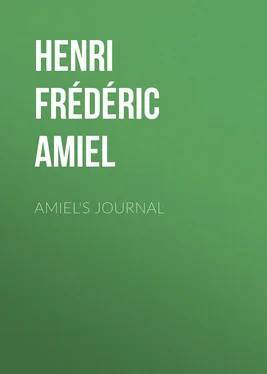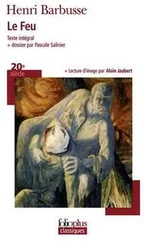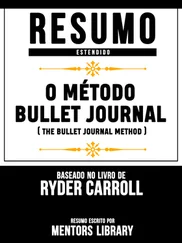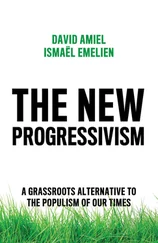Henri Frédéric Amiel - Amiel's Journal
Здесь есть возможность читать онлайн «Henri Frédéric Amiel - Amiel's Journal» — ознакомительный отрывок электронной книги совершенно бесплатно, а после прочтения отрывка купить полную версию. В некоторых случаях можно слушать аудио, скачать через торрент в формате fb2 и присутствует краткое содержание. Издательство: Иностранный паблик, Жанр: literature_19, foreign_antique, foreign_prose, Зарубежные любовные романы, на английском языке. Описание произведения, (предисловие) а так же отзывы посетителей доступны на портале библиотеки ЛибКат.
- Название:Amiel's Journal
- Автор:
- Издательство:Иностранный паблик
- Жанр:
- Год:неизвестен
- ISBN:нет данных
- Рейтинг книги:5 / 5. Голосов: 1
-
Избранное:Добавить в избранное
- Отзывы:
-
Ваша оценка:
- 100
- 1
- 2
- 3
- 4
- 5
Amiel's Journal: краткое содержание, описание и аннотация
Предлагаем к чтению аннотацию, описание, краткое содержание или предисловие (зависит от того, что написал сам автор книги «Amiel's Journal»). Если вы не нашли необходимую информацию о книге — напишите в комментариях, мы постараемся отыскать её.
Amiel's Journal — читать онлайн ознакомительный отрывок
Ниже представлен текст книги, разбитый по страницам. Система сохранения места последней прочитанной страницы, позволяет с удобством читать онлайн бесплатно книгу «Amiel's Journal», без необходимости каждый раз заново искать на чём Вы остановились. Поставьте закладку, и сможете в любой момент перейти на страницу, на которой закончили чтение.
Интервал:
Закладка:
February 10, 1853.—This afternoon I made an excursion to the Salève with my particular friends, Charles Heim, Edmond Scherer, Élie Lecoultre, and Ernest Naville. The conversation was of the most interesting kind, and prevented us from noticing the deep mud which hindered our walking. It was especially Scherer, Naville, and I who kept it alive. Liberty in God, the essence of Christianity, new publications in philosophy, these were our three subjects of conversation. The principle result for me was an excellent exercise in dialectic and in argumentation with solid champions. If I learned nothing, many of my ideas gained new confirmation, and I was able to penetrate more deeply into the minds of my friends. I am much nearer to Scherer than to Naville, but from him also I am in some degree separated.
It is a striking fact, not unlike the changing of swords in “Hamlet,” that the abstract minds, those which move from ideas to facts, are always fighting on behalf of concrete reality; while the concrete minds, which move from facts to ideas, are generally the champions of abstract notions. Each pretends to that over which he has least power; each aims instinctively at what he himself lacks. It is an unconscious protest against the incompleteness of each separate nature. We all tend toward that which we possess least of, and our point of arrival is essentially different from our point of departure. The promised land is the land where one is not. The most intellectual of natures adopts an ethical theory of mind; the most moral of natures has an intellectual theory of morals. This reflection was brought home to me in the course of our three or four hours’ discussion. Nothing is more hidden from us than the illusion which lives with us day by day, and our greatest illusion is to believe that we are what we think ourselves to be.
The mathematical intelligence and the historical intelligence (the two classes of intelligences) can never understand each other. When they succeed in doing so as to words, they differ as to the things which the words mean. At the bottom of every discussion of detail between them reappears the problem of the origin of ideas. If the problem is not present to them, there is confusion; if it is present to them, there is separation. They only agree as to the goal—truth; but never as to the road, the method, and the criterion.
Heim represented the impartiality of consciousness, Naville the morality of consciousness, Lecoultre the religion of consciousness, Scherer the intelligence of consciousness, and I the consciousness of consciousness. A common ground, but differing individualities. Discrimen ingeniorum .
What charmed me most in this long discussion was the sense of mental freedom which it awakened in me. To be able to set in motion the greatest subjects of thought without any sense of fatigue, to be greater than the world, to play with one’s strength, this is what makes the well-being of intelligence, the Olympic festival of thought. Habere, non haberi . There is an equal happiness in the sense of reciprocal confidence, of friendship, and esteem in the midst of conflict; like athletes, we embrace each other before and after the combat, and the combat is but a deploying of the forces of free and equal men.
March 20, 1853.—I sat up alone; two or three times I paid a visit to the children’s room. It seemed to me, young mothers, that I understood you! sleep is the mystery of life; there is a profound charm in this darkness broken by the tranquil light of the night-lamp, and in this silence measured by the rhythmic breathings of two young sleeping creatures. It was brought home to me that I was looking on at a marvelous operation of nature, and I watched it in no profane spirit. I sat silently listening, a moved and hushed spectator of this poetry of the cradle, this ancient and ever new benediction of the family, this symbol of creation, sleeping under the wing of God, of our consciousness withdrawing into the shade that it may rest from the burden of thought, and of the tomb, that divine bed, where the soul in its turn rests from life. To sleep is to strain and purify our emotions, to deposit the mud of life, to calm the fever of the soul, to return into the bosom of maternal nature, thence to re-issue, healed and strong. Sleep is a sort of innocence and purification. Blessed be He who gave it to the poor sons of men as the sure and faithful companion of life, our daily healer and consoler.
April 27, 1853.—This evening I read the treatise by Nicole so much admired by Mme. de Sévigné: “ Des moyens de conserver la paix avec les hommes. ” Wisdom so gentle and so insinuating, so shrewd, piercing, and yet humble, which divines so well the hidden thoughts and secrets of the heart, and brings them all into the sacred bondage of love to God and man, how good and delightful a thing it is! Everything in it is smooth, even well put together, well thought out, but no display, no tinsel, no worldly ornaments of style. The moralist forgets himself and in us appeals only to the conscience. He becomes a confessor, a friend, a counsellor.
May 11, 1853.—Psychology, poetry, philosophy, history, and science, I have swept rapidly to-day on the wings of the invisible hippogriff through all these spheres of thought. But the general impression has been one of tumult and anguish, temptation and disquiet.
I love to plunge deep into the ocean of life; but it is not without losing sometimes all sense of the axis and the pole, without losing myself and feeling the consciousness of my own nature and vocation growing faint and wavering. The whirlwind of the wandering Jew carries me away, tears me from my little familiar enclosure, and makes me behold all the empires of men. In my voluntary abandonment to the generality, the universal, the infinite, my particular ego evaporates like a drop of water in a furnace; it only condenses itself anew at the return of cold, after enthusiasm has died out and the sense of reality has returned. Alternate expansion and condensation, abandonment and recovery of self, the conquest of the world to be pursued on the one side, the deepening of consciousness on the other—such is the play of the inner life, the march of the microcosmic mind, the marriage of the individual soul with the universal soul, the finite with the infinite, whence springs the intellectual progress of man. Other betrothals unite the soul to God, the religious consciousness with the divine; these belong to the history of the will. And what precedes will is feeling, preceded itself by instinct. Man is only what he becomes—profound truth; but he becomes only what he is, truth still more profound. What am I? Terrible question! Problem of predestination, of birth, of liberty, there lies the abyss. And yet one must plunge into it, and I have done so. The prelude of Bach I heard this evening predisposed me to it; it paints the soul tormented and appealing and finally seizing upon God, and possessing itself of peace and the infinite with an all-prevailing fervor and passion.
May 14, 1853.—Third quartet concert. It was short. Variations for piano and violin by Beethoven, and two quartets, not more. The quartets were perfectly clear and easy to understand. One was by Mozart and the other by Beethoven, so that I could compare the two masters. Their individuality seemed to become plain to me: Mozart—grace, liberty, certainty, freedom, and precision of style, and exquisite and aristocratic beauty, serenity of soul, the health and talent of the master, both on a level with his genius; Beethoven—more pathetic, more passionate, more torn with feeling, more intricate, more profound, less perfect, more the slave of his genius, more carried away by his fancy or his passion, more moving, and more sublime than Mozart. Mozart refreshes you, like the “Dialogues” of Plato; he respects you, reveals to you your strength, gives you freedom and balance. Beethoven seizes upon you; he is more tragic and oratorical, while Mozart is more disinterested and poetical. Mozart is more Greek, and Beethoven more Christian. One is serene, the other serious. The first is stronger than destiny, because he takes life less profoundly; the second is less strong, because he has dared to measure himself against deeper sorrows. His talent is not always equal to his genius, and pathos is his dominant feature, as perfection is that of Mozart. In Mozart the balance of the whole is perfect, and art triumphs; in Beethoven feeling governs everything and emotion troubles his art in proportion as it deepens it.
Читать дальшеИнтервал:
Закладка:
Похожие книги на «Amiel's Journal»
Представляем Вашему вниманию похожие книги на «Amiel's Journal» списком для выбора. Мы отобрали схожую по названию и смыслу литературу в надежде предоставить читателям больше вариантов отыскать новые, интересные, ещё непрочитанные произведения.
Обсуждение, отзывы о книге «Amiel's Journal» и просто собственные мнения читателей. Оставьте ваши комментарии, напишите, что Вы думаете о произведении, его смысле или главных героях. Укажите что конкретно понравилось, а что нет, и почему Вы так считаете.












